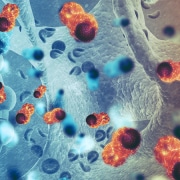PPP rare diseases report: Five things we learned
We round up the key genomics points from the latest Public Policy Projects report
A new report has made recommendations into how the UK rare disease strategy should be implemented.
‘A Fairer Future: Towards a more equitable delivery of care for those with rare diseases and conditions in the UK’ was produced with contributions from over 60 participants, including clinicians, researchers and patient representatives, led by Alastair Kent, former head of Genetic Alliance UK, and Dr Shehla Mohammed, consultant and clinical geneticist at Guy’s and St Thomas’ NHS Foundation Trust.
This document follows the publication of the UK Rare Disease Framework (2021), which saw the Government set high-level priorities aimed at improving services and support for people affected by rare diseases in the following four areas:
- helping patients get a final diagnosis faster;
- increasing awareness of rare diseases among healthcare professionals;
- improving coordination of care; and
- improving access to specialist care, treatments and medicines.
As around 80% of rare diseases have a genetic cause, genomics features prominently throughout the recommendations in the report. Here are some of the key points:
Newborn screening
The report recommends that spinal muscular atrophy (SMA) be added to the current newborn screening programme as a priority, without waiting for results from the Newborn Genomes Programme.
A gene therapy is now available for SMA, which can prevent progression of the disease but cannot undo damage already done. As such, it gives the best results in children who have not yet exhibited any symptoms of the condition. In these cases, it may be close to a curative treatment.
As well as recommendations for SMA, the report suggests that any newborn screening programme should be adaptable enough to incorporate new tests for conditions that become actionable as and when treatments are approved.
The Newborn Genomes Programme
This pilot scheme, currently being planned as a collaboration between Genomics England and the NHS will explore the possibility of offering whole genome sequencing to newborns, and whether it would be beneficial to incorporate this approach into mainstream newborn screening.
The pilot will also consider which conditions would be screened for, focusing on actionable conditions that affect children in the first years of life.
Non-actionable diagnoses
The authors also stress the value of a diagnosis for patients, clinicians and carers even when it may not be actionable.
“If you know what you have, you know what to expect. Even if…there is no treatment available, at least you know how to deal with it and how to make [the patient’s] life more comfortable” said Manchester Centre for Genomic Medicine consultant and clinical geneticist, Professor Dian Donnai.
For parents of asymptomatic newborns, however, the authors say, this information “should not be regarded as something that would be universally welcomed. In some case, for example, families have enjoyed the first few years of life without anxieties looming over them with regards to when symptoms may present and how they might do so.”
After diagnosis
The report highlights the potential benefits of genomic medicine in diagnosing rare diseases, but it stresses that this needs to be backed up by support and treatment.
Figures from the Newborn Genomes Programme alone suggest that around 3,000 or more babies and children will be diagnosed with rare diseases every year, in addition to increased numbers as more tests are incorporated into the NHS Genomic Medicine Service. The increase in diagnoses needs to be matched in availability of specialist appointments, treatments and care
Staff need to be prepared
Although the numbers of patients being diagnosed with rare diseases is likely to rise across all age groups, around three-quarters of rare diseases affect children. As such, healthcare workers, especially those who specialise in anti-natal and neo-natal care, should be well informed so they can assist pregnant patients and ensure that new parents understand screening services and the options available to them.
You can read the full report here. An archive of historical reports is also available here, on the PPP website.
–
Please note: This article is for informational or educational purposes, and does not substitute professional medical advice.









